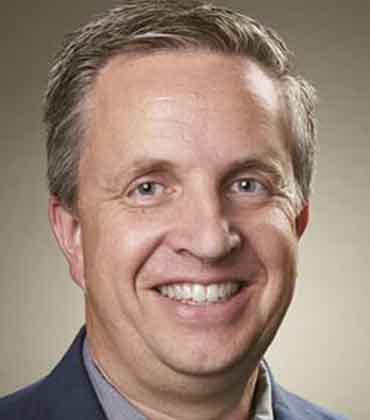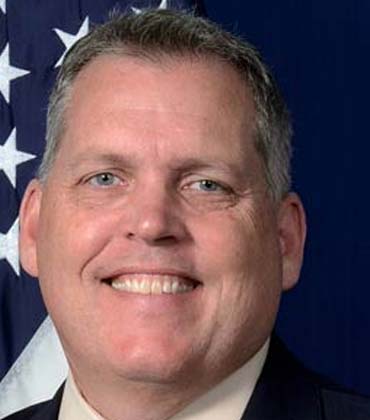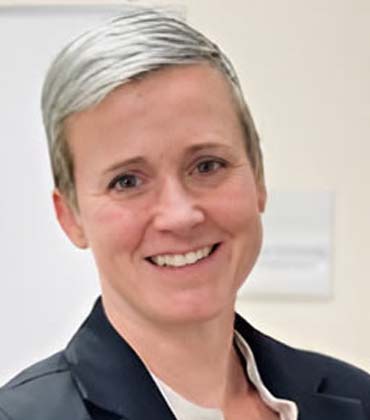THANK YOU FOR SUBSCRIBING
When people think about technological advancement, correctional facilities are not often the first place that comes to mind. But for ViaPath Technologies, formerly known as GTL, innovation inside facility walls is not just a business opportunity—it’s a profound social mission. At the helm of this transformation is Deb Alderson, President and CEO, who has led ViaPath since 2018 with a vision to provide secure, affordable communication and meaningful rehabilitation tools to incarcerated individuals across the United States and abroad. ViaPath operates in the highly specialized and often scrutinized space of communications services for incarcerated persons. While this industry has historically been associated with unjustifiably high rates and limited access, Alderson’s leadership has turned that image on its head. Under her guidance, ViaPath has emerged as a company driven by purpose, dedicated to providing critical services that help prepare incarcerated individuals for reintegration into society, all while maintaining the highest levels of security and operational integrity. Transforming the Inmate Communications Market The markets ViaPath serves are more complex than they may appear. It’s not simply about installing phones in prisons or selling access to emails. It’s about enabling a secure and controlled flow of information and communication that balances the rights and needs of incarcerated individuals with the essential security requirements of correctional institutions. “If you can just imagine our everyday lives—getting access to the internet, watching YouTube videos, communicating openly—it has to be different when you're incarcerated,” Alderson says. “That difference is what ViaPath’s secure network was built to address. We’ve made tremendous investments in developing a very secure network, and it’s our network that we install into these facilities. All of the communication tools that we provide to the incarcerated run on this network.”
In a world increasingly reliant on digital services and cloud-based infrastructure, few sectors face security expectations as high as those in government, finance, and healthcare. For SaaS vendors aiming to work with federal agencies or operate in federally regulated industries, the bar isn’t just high—it’s dauntingly rigid. This rigidity stems from extensive compliance requirements such as FedRAMP, FISMA, and HIPAA, which demand rigorous security controls, continuous monitoring, and formal authorization processes. These standards are designed to protect sensitive data and national interests, but they also create significant barriers to entry for modern software providers. As a result, many modern cloud tools—from simple scheduling platforms to complex AI software—are essentially off-limits to the federal government and related sectors. This digital divide can lead to startling inefficiencies, forcing agencies to rely on outdated or less effective solutions while the private sector benefits from cutting-edge innovation. This is where Knox Systems, under the leadership of CEO Irina Denisenko, is carving out a defining presence. In less than a decade, Knox has emerged not just as a managed cloud provider, but as a transformational force for FedRAMP compliance—an otherwise long and expensive roadblock for most software vendors. “We’re in the business of making the best software accessible to the people who need it most,” says Denisenko, reflecting on the mission that fuels Knox’s trajectory Ten Years of Earned Trust The Federal Risk and Authorization Management Program (FedRAMP) is not only one of the most comprehensive security compliance frameworks in the world—it’s also mandatory for any cloud service provider working with the federal government. However, obtaining FedRAMP certification is notoriously difficult, and for good reason. It demands stringent controls, including U.S. citizenship for engineers handling production code, exclusive operation on U.S. soil, and rigorous documentation and monitoring protocols. Completing the process without assistance may cost more than $3 million and take years..
Expert consulting in the government contracting space supercharges businesses, helping unlock lucrative, high-impact opportunities and build lasting success. However, the market tends to be more corporate and profit-centered, leaving smaller firms at a disadvantage. Keelen Communications, a family-owned firm, is here to change the narrative with its agility to make swift, client-centric decisions that larger agencies cannot match. Specialist in strategic communications and public affairs, Keelen Communications distinguishes itself by building trust and loyalty that transcends mere business transactions. From 8(a) firms and Super 8(a) businesses to woman- and minority-owned, it handholds all small businesses, delivering a tailored communications-driven strategy and helping them win government contracts. Embracing the ethos of a family-like culture and operating from a home-based setting, it welcomes clients as guests into a warm, hospitable environment. It focuses on helping clients build strong, recognizable brands that resonate with policymakers, trade associations and community stakeholders. “Throughout Washington, D.C., we adopt a holistic perspective, helping clients navigate the halls of power and administration,” says Matt Keelen, managing principal. When government agencies award contracts, they prioritize partners who deliver the most effective, efficient solutions. Keelen Communications’s brand campaigns position clients as trusted experts who help governments achieve optimal outcomes on every project. It is not a lobbyist. It builds the communication foundation that advocacy efforts rely on before clients engage in legislative outreach. Without this groundwork, clients end up struggling because legislators don’t know about their proposal. Transforming clients’ abstract offerings into a recognizable name that fosters trust and drives long-term success is a hallmark of Keelen Communications. It begins every engagement with an internal consultation to glean a clear idea of client challenges and objectives. Extending itself as a part of the clients’ sales and communications team helps uncover in-depth insight and perspective like that of full-time employees.
Modern courtrooms need modern solutions. But many municipal courts still rely on outdated, paper intensive processes leaving Clerks overwhelmed by manual tasks, data entry, and juggling multiple disconnected systems. That’s where JusticeONE steps in. With a thirty (30) year track record of successfully delivering municipal court solutions, JusticeONE replaces inefficiency with a process driven, streamlined, cloud-based technology platform. Purpose-built for courts, the solution digitizes operations from start to finish—reducing paperwork, connecting people with data, and helping court teams focus on what really matters: efficiently serving justice. “JusticeONE Court was built with a clear vision to modernize municipal court technology from the ground up. Rather than simply digitize old processes, we have created a comprehensive system that delivers usability and workflow mapping so court administrators, clerks, and judicial personnel can better manage all aspects of caseloads,” states Jason Norton, CEO. “Leveraging a secure web-based platform and modern technology components, our system positions courts for the future and allows our company to deliver continued feature expansion and innovation.” Built on Microsoft’s Azure.Gov Cloud, the JusticeONE Platform offers unmatched security, CJIS compliance, and industry-leading uptime and scalability. It meets all federal, state, and local requirements without burdening municipal IT teams or requiring costly hardware investments. Additionally, this court platform allows for authorized clerks to run individual or batch criminal histories through the FBI’s NCIC portal with just a few clicks. Combined with the JusticeONE RMS Law Enforcement suite, JusticeONE Court allows municipalities to have an end-to-end solution serving both police and court personnel in a fully integrated manner. In addition to decades of expertise, JusticeONE Court is designed and supported by people who have courtroom experience. Over 40% of JusticeONE employees worked in court and public safety and the remaining 60% are technology experts. With a phenomenal culture that has retained the original coders and added more multi-faceted technologists, the capacity of the team is continually growing. “Our platform is built with real-world court knowledge, not assumptions and delivers functionality and efficiency in a way that courts actually perform.” says Jason Norton, CEO.

Jeff Scheetz, CIO, City of Avondale, Arizona

Scot Barker, Chief Innovation Officer, City of Burlington

John Holden, Smart City Manager, City of Raleigh Municipal Government

Jarrad P. Berkihiser, Director of Emergency Services, Pennsylvania Department of Military and Veterans Affairs

Kristin Weivoda, Chief of Emergency Services, County of Yolo
Human-Centered Infrastructure: How Technology is Transforming Justice and Governance
Correctional reintegration services play a vital role in helping individuals transition successfully from incarceration to community life. These programs address essential areas like employment, education, housing, and mental health, which are proven to reduce the risk of reoffending. A focus on rehabilitation rather than punishment enables safer, more inclusive communities. Technology providers like ViaPath Technologies contribute to this effort by offering tools that enhance family connectivity, support education, and guide reentry planning. Such efforts reinforce a justice system built on opportunity and longterm stability.
Navigating public institutions and influencing policy also requires a strong public affairs strategy. These services help organizations craft effective messaging, engage with government bodies, and build credibility with community stakeholders. In a landscape shaped by evolving regulations and heightened accountability, public affairs professionals ensure their clients are visible, informed, and responsive. Keelen Communications is one example of a firm that helps bridge the gap between private interests and public impact, supporting meaningful engagement and policy alignment.
At the municipal level, courts are turning to specialized software to streamline operations and better serve the public. Modern court management platforms handle everything from case tracking and electronic filing to payment processing and jury scheduling. Tyler Municipal Justice and Tyler Enterprise Case Manager serve a wide range of jurisdictions with scalable tools, while Justice One delivers cloud-based solutions tailored for municipal needs. These systems reduce administrative burden, enhance transparency, and integrate with law enforcement databases, creating a more responsive and accessible justice process.
As these systems increasingly rely on cloud infrastructure, strong SaaS security becomes a non-negotiable priority. Mission-critical platforms must protect sensitive data, ensure uptime, and meet regulatory requirements. Realtime threat detection, secure access control, and constant monitoring are now essential components of any robust security strategy. Providers like Knox Systems help organizations safeguard their digital environments, especially in high-stakes sectors like government and public service.
Together, these capabilities reflect a coordinated push toward systems that are not only technologically advanced but also rooted in public trust, operational efficiency, and human-centered outcomes.